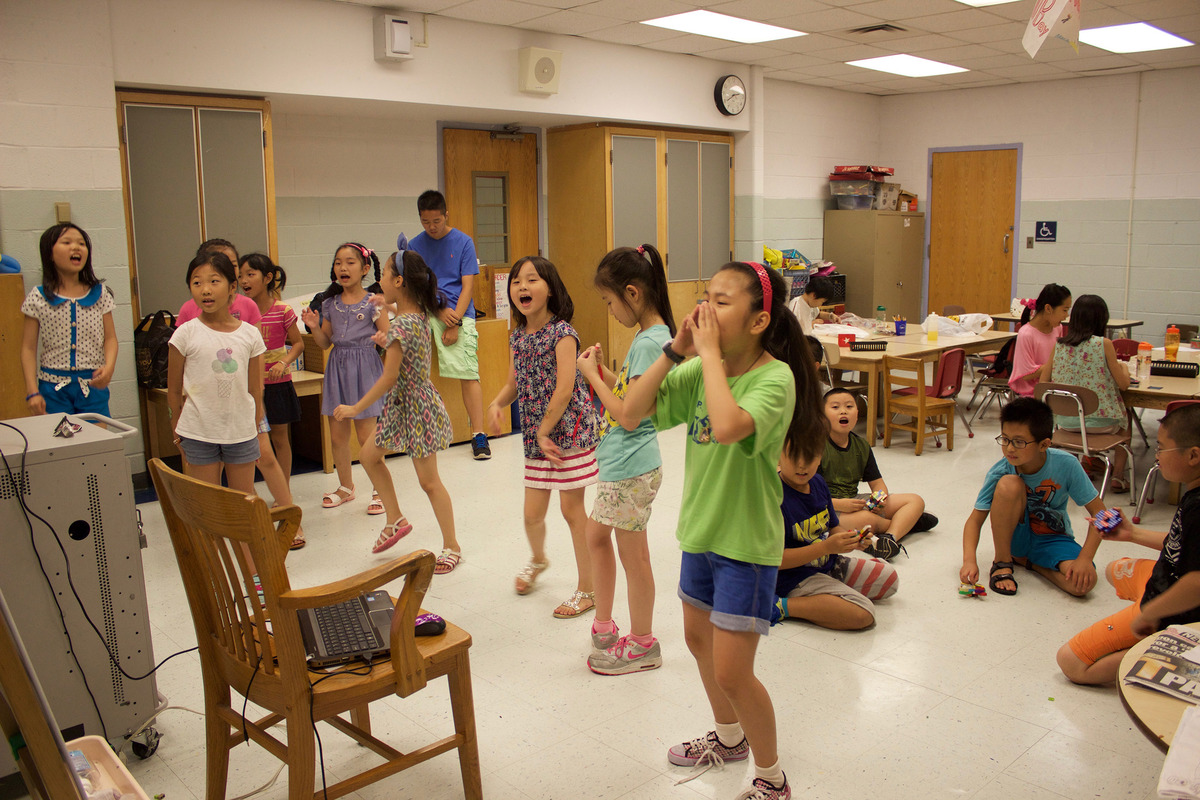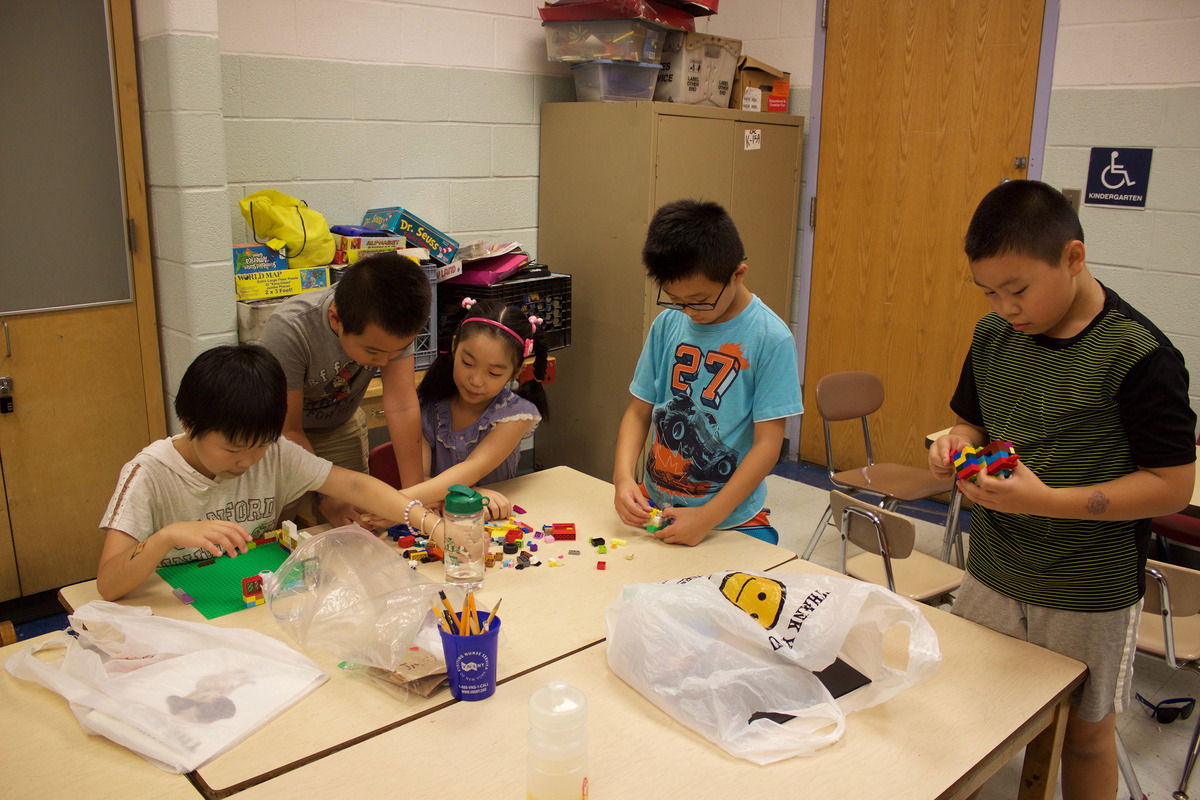
From the People's Daily App.
This is Story in the Story.
Chinese have a rather unique custom referred to as “satellite babies.”
It means children born in the US to Chinese immigrant parents who are sent to China as infants and raised by relatives - typically grandparents - and then returned to the US to start school when they are 5 or 6 years old.
Parents do this for various reasons. They often work antisocial hours or have several jobs. They also want to send their children to China for cultural reasons.
There is a downside to this practice, however, with studies showing that the trauma experienced by both children and parents can last a lifetime.
Today’s Story in the Story looks at the difficulties satellite babies and their parents can face when adjusting to a new life together.

Children sent to China as satellite babies sing, dance and play with toys at the Chinese-American Planning Council in New York. (Photo: China Daily)
The term “satellite babies” was coined by Yvonne Bohr, a clinical psychologist at York University in Toronto, Canada, who has been studying such separations since 2006.
"Babies are often sent away at around the time they have just developed a strong attachment to their biological parents. As a result, they may experience distress during this separation," Bohr said.
"When they return, the parents in turn may expect the children to be very happy to be home, often not understanding that for the child, this isn't home," she said.
Lindy Tse will never forget the night her parents brought her back to the United States from Fujian province when she was 4 years old.
She cried silently throughout the journey because she missed her nainai (grandmother), who raised her in China.
On her return, it took Tse a year before she spoke to her father.
Now 17, she said, "I think it was because we had both lost four years that could have been important to our relationship."
She speaks only English now and has forgotten most of her early childhood spent in a small village with her grandmother. She still feels distantly connected with her parents.
"I just don't know how to show my emotions to them," she said with a shrug.
David Chen's parents sent him to Fujian to be raised by his grandparents before he was 1 year old. When he was 5, they brought him back to New York to start school.
Chen, now 26 and a student at Touro College of Osteopathic Medicine in New York, said: "I didn't know who they were - they were strangers to me. I was pretty distant with them."
To pay for him to go to China, his parents worked 14 hours a day at different restaurants, often seven days a week. The time the family spent together was limited.

Children sent to China as satellite babies sing, dance and play with toys at the Chinese-American Planning Council in New York. (Photo: China Daily)
By the time Chen started in the third grade, he was starting to have suicidal thoughts because of being separated from his grandparents, the difficulty of learning English, and bullying at school.
But instead of sharing his thoughts with his parents, he chose to keep his feelings to himself. "I definitely had my emotions bottled up," he said.
A mother working in Boston's Chinatown sent her son to her hometown in China after he was born in the US. "Even though I missed him all the time, there's just no way you can get everything you want. You want to make money, but you also want to take care of your kid ... so we had to give something up," she said.
Research suggests that a "satellite" upbringing can disrupt a child's environment, which can lead to depression, anxiety and misbehavior at school.
Lois Lee directs the Chinese-American Planning Council school-age childcare program in Queens, New York.
Lee, who has worked with immigrant families for more than 50 years, said 70 percent of the children now at the council are Asian-Americans, of which about 70 percent are satellite babies.
She said reunions can be difficult for both parents and children after a long-term separation.
"They (parents) didn't see their children's first steps. They didn't hear them when they first learned how to talk. They lost five years bonding with them," she said.
Some children feel guilty because their parents cannot take care of them.
"They feel they are a burden to their family, and they think: 'Why did you bring me back here? You don't want to spend any time with me'," Lee said.
"Children need to know their parents love them and want to talk to them," she said.
(Produced by Nancy Yan Xu, Brian Lowe, Lance Crayon, and Chelle Wenqian Zeng. Music by: bensound.com. Text from China Daily.)


